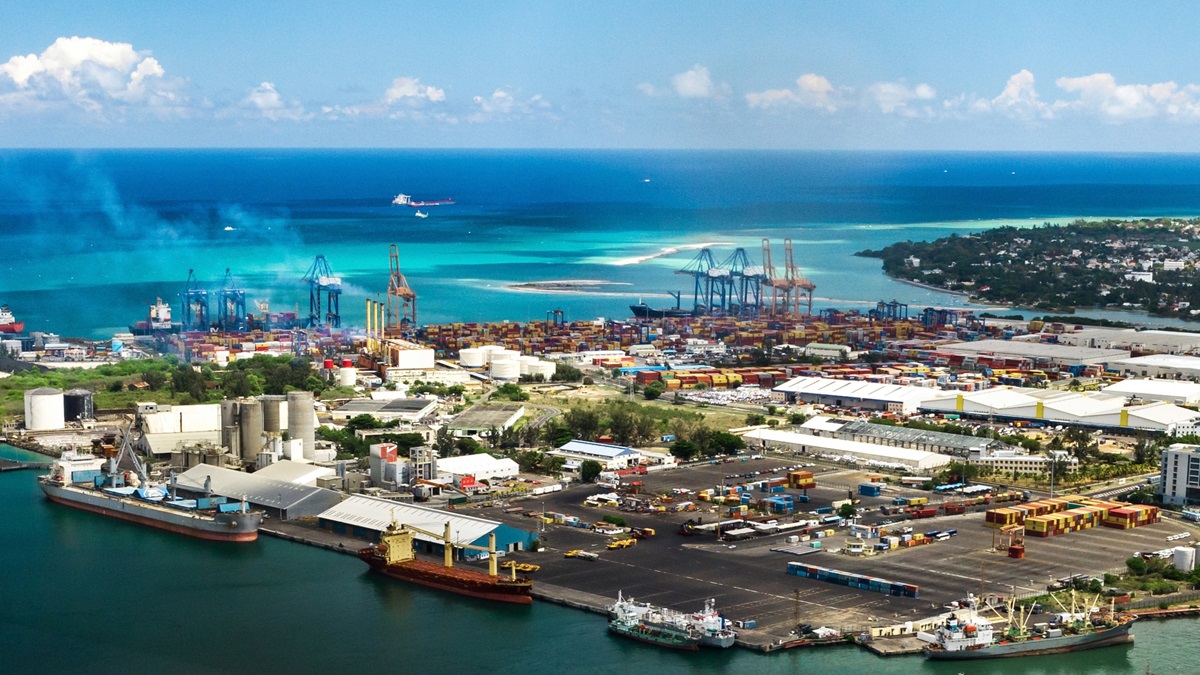Africa bears the brunt of the Red Sea shipping crisis, but makes strides in port and vessel performance, trade facilitation and the clean energy transition.
© Shutterstock/Lobachad | Port Louis, Mauritius.
The latest Review of Maritime Transport released on 22 October highlights several bright spots across Africa’s shipping sector.
Between the first half of 2018 and the first half of 2023, port calls by container ships rose by 20% in Africa, while tanker calls grew by 38% -- both record-breaking increases for the continent.
On vessel registration, Liberia in 2022 became the world’s largest ship register in terms of deadweight tonnage, surpassing Panama which had been in the lead for three decades.
The African nation continued to top the list in 2023, posting a 17.3% share of global fleet compared to Panama’s 16.1%.
Other African top performers included Cameroon at 27th place in terms of deadweight tonnage and vessel number, while Nigeria ranked 33rd, after expanding 16.2% in registered deadweight.
More broadly, South-South waterways connecting Sub-Saharan Africa to other parts of the developing world, logged the highest increase (9%) in its volume of globalized container trade in 2023.
Red Sea crisis: Stakes high for Africa
Attacks on commercial ships in the Red Sea, which began in November 2023, prompted large numbers of vessels to navigate away from the Suez Canal and around the Cape of Good Hope.
The rerouting, having increased congestion in South African ports, created opportunities for countries like Madagascar, Mauritius, Namibia or Tanzania, which are strategically located on maritime routes connecting Asia with Europe.
Several East African countries, whose foreign trade is highly dependent on the Suez Canal – by volume, that’s approximately 31% and 34% respectively for Djibouti and the Sudan – are therefore subject to the disruptions.
For example, East Africa has seen a shortage of perishable goods and standard containers due to longer cargo delivery times, impacting avocado, tea and coffee supply chains.
Moreover, the impact on empty containers, driven by carriers prioritizing shipments to high-paying markets such as Europe and the United States, came at the expense of regions like Africa – reminiscent of the pattern seen during the COVID-19 pandemic.
Africa seizing opportunities in renewable energy supply chain
The global transition to renewable energy sources also holds promise for Africa.
Some African countries are already tapping into green hydrogen to meet their energy needs, while others look to become port hubs for green hydrogen production, storage and transport.
The African Hydrogen Partnership has identified Djibouti, Egypt, Ethiopia, Ghana, Kenya, Mauritania, Morocco, Nigeria, Tanzania, Rwanda and South Africa as potential landing zones or hubs for storing and distributing green hydrogen.
Africa in action to ease trade, enhance resilience
Amid geopolitical uncertainties and climate risks, Africa is taking steps to enhance shipping capacity and trade connectivity.
Mauritius, for instance, has been building resilience to a range of threats by strengthening national development policies and cooperation with partners in and beyond Africa to bolster maritime security.
Its various initiatives include capacity building, regional training and information sharing to combat pirate risks and guarantee the safety of maritime lanes, along with measures to increase resilience through port reforms focusing on connectivity and sustainability.
The continent also shores up trade facilitation to cut transit times and costs, through initiatives such as the East African Community’s Single Customs Territory and one-stop border posts.

